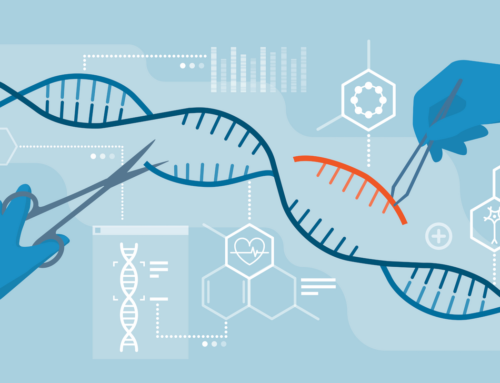March marks Colon Cancer Awareness Month, a time dedicated to raising awareness about one of the most prevalent yet preventable cancers worldwide. Colon cancer, also known as colorectal cancer, affects thousands of lives each year. Amidst the initiatives and campaigns, it’s crucial not only to spotlight the importance of early detection and prevention but also to delve into the complexities of hereditary colorectal cancer syndromes, shedding light on how genetic factors contribute to the onset of this disease.
The Significance of Colon Cancer Awareness Month
Colon cancer remains a significant health concern globally, ranking among the leading causes of cancer-related deaths. Despite being highly treatable if caught early, many cases go undiagnosed until they reach advanced stages, reducing the chances of successful treatment. Colon Cancer Awareness Month serves as a platform to educate individuals about the risk factors, symptoms, screening methods, and preventive measures associated with this disease.
Understanding Colon Cancer Risk Factors
Several factors contribute to the development of colon cancer, including age, family history, lifestyle choices, and underlying medical conditions. While advancing age increases the risk, individuals with a family history of colon cancer or polyps are at a higher risk of developing the disease. Moreover, lifestyle factors such as poor diet, lack of physical activity, obesity, smoking, and excessive alcohol consumption also play significant roles in increasing susceptibility to colon cancer.
Hereditary Colorectal Cancer Syndromes: Unraveling the Genetic Component
Hereditary colorectal cancer syndromes represent a subset of colon cancers that stem from genetic mutations passed down through families. These syndromes significantly elevate the risk of developing colon cancer at a younger age and often involve the development of multiple polyps in the colon. Among the most well-known hereditary colorectal cancer syndromes are Familial Adenomatous Polyposis (FAP) and Lynch syndrome (previously known as Hereditary Nonpolyposis Colorectal Cancer or HNPCC).
Familial Adenomatous Polyposis (FAP)
FAP is an autosomal dominant genetic condition characterized by the formation of hundreds to thousands of polyps in the colon and rectum during adolescence. If left untreated, these polyps invariably progress to cancer. Individuals with FAP have a nearly 100% lifetime risk of developing colon cancer without intervention. Early detection through regular colonoscopies and surgical interventions to remove the colon can significantly reduce the risk of cancer in individuals with FAP.
Lynch Syndrome
Lynch syndrome is another hereditary condition associated with an increased risk of colorectal cancer as well as other cancers such as endometrial, ovarian, stomach, small intestine, urinary tract, and brain cancers. It results from mutations in genes responsible for DNA repair mechanisms. Lynch syndrome accounts for approximately 3-5% of all colorectal cancer cases and often presents at a younger age compared to sporadic cases. Genetic testing and counseling are essential for individuals with a family history of Lynch syndrome to understand their risk and implement appropriate screening measures.
Empowering Individuals Through Education and Screening
Education and awareness are paramount in combating colon cancer. Understanding the risk factors, recognizing symptoms, and embracing screening protocols can significantly impact early detection and treatment outcomes. Screening methods such as colonoscopies, fecal occult blood tests, and stool DNA tests are instrumental in detecting precancerous polyps or early-stage cancers when they are most treatable.
The Role of Genetic Testing and Counseling
For individuals with a family history of colon cancer or suspected hereditary colorectal cancer syndromes, genetic testing and counseling offer invaluable insights into their risk profile. Genetic counselors play a crucial role in interpreting genetic test results, providing personalized risk assessments, and guiding individuals in making informed decisions regarding screening, surveillance, and preventive measures.
Advancing Research and Promoting Innovation
Efforts to combat colon cancer extend beyond awareness and education. Continued research into the molecular mechanisms underlying colorectal cancer, the development of targeted therapies, and the exploration of novel screening modalities are vital in improving outcomes and reducing the burden of this disease on individuals and healthcare systems worldwide.
Conclusion
Colon Cancer Awareness Month serves as a poignant reminder of the importance of prioritizing our health and taking proactive steps to mitigate the risk of colorectal cancer. By fostering awareness, promoting early detection, and advocating for accessible screening and genetic testing services, we can empower individuals to take control of their health and reduce the incidence and impact of colon cancer in our communities. Let us join hands in spreading awareness, supporting research initiatives, and striving towards a future where colon cancer is no longer a leading cause of preventable deaths.
The team at Chicago Genetic Consultants welcomes any questions about colorectal cancer or hereditary colorectal cancer syndromes, so please contact us with any questions!



